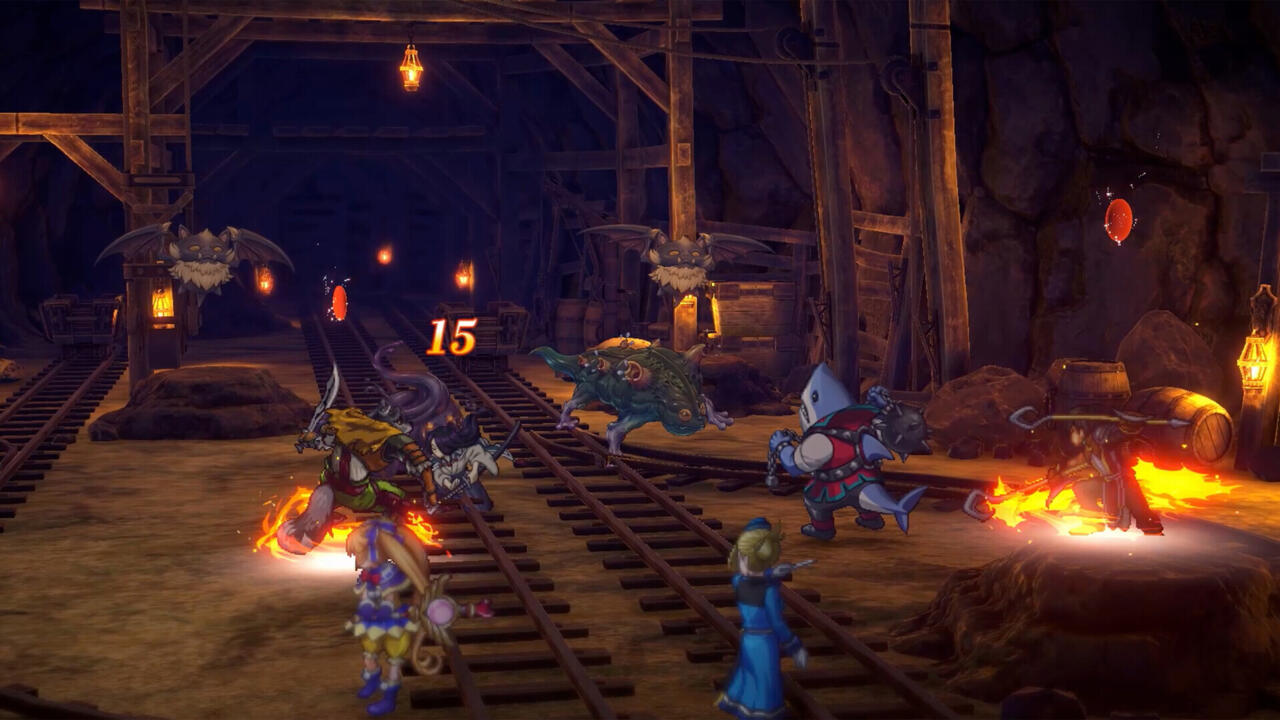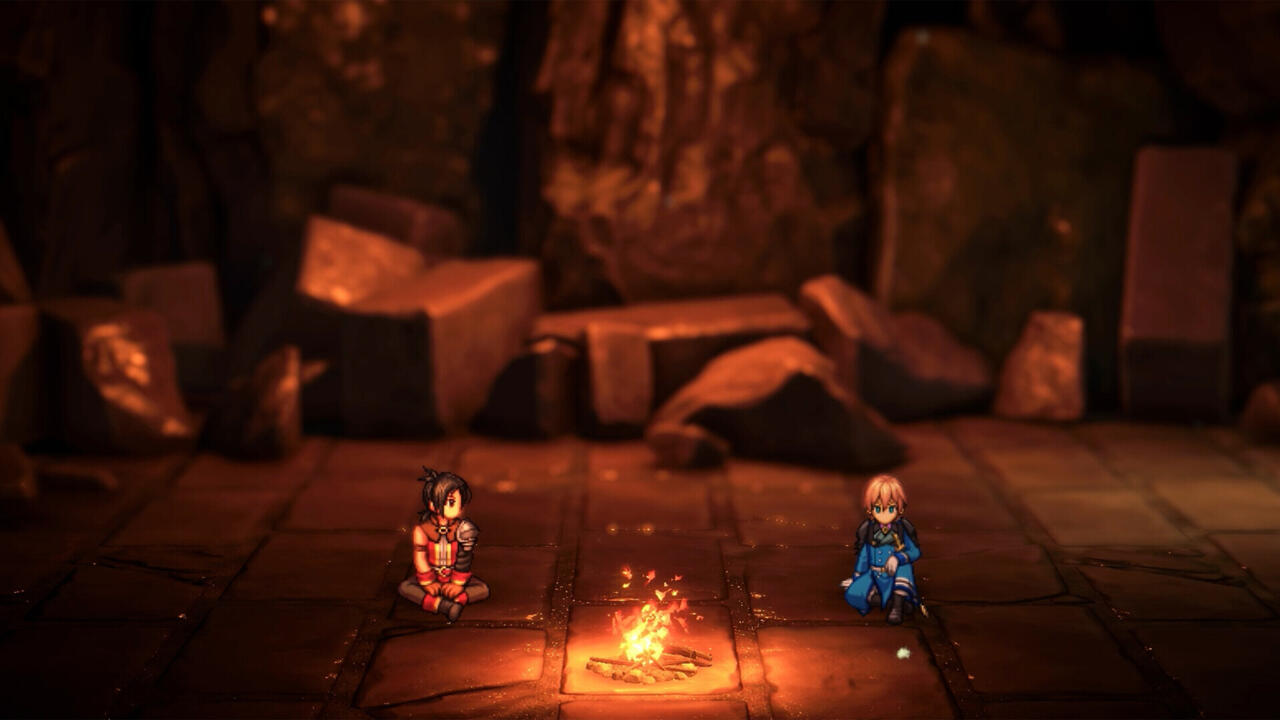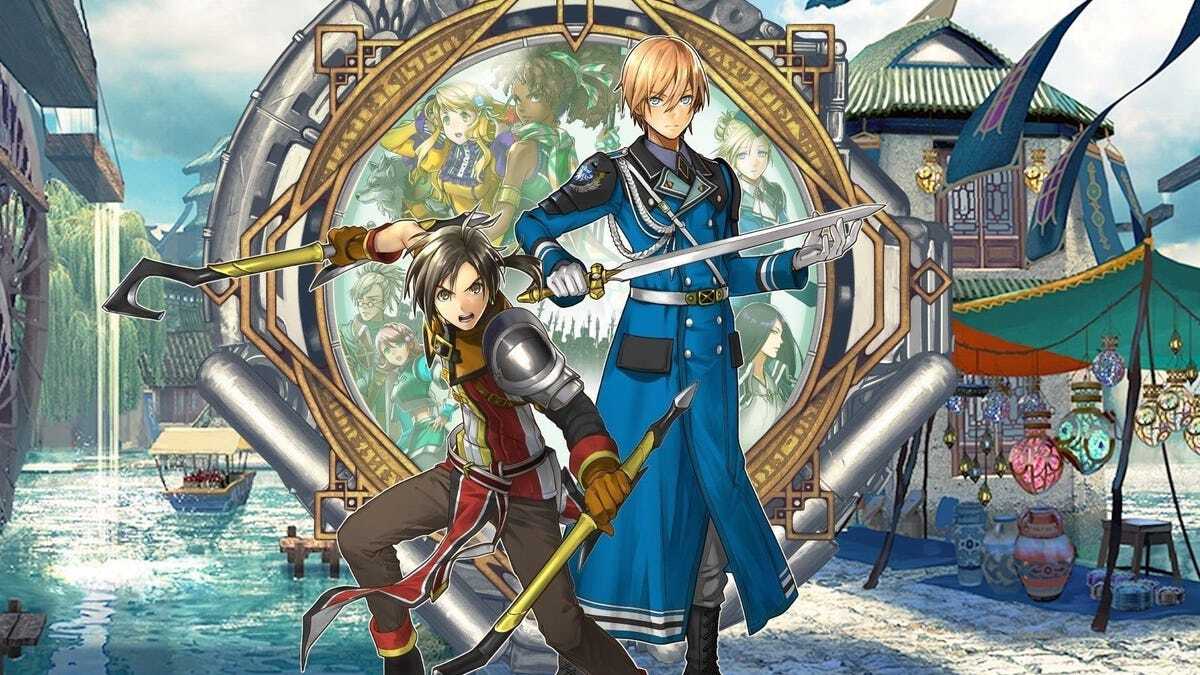In the years since the explosion of game crowdfunding, a stigma has emerged surrounding these titles. Yes, there have been plenty of games that enjoyed great success after their crowdfunding campaigns, but more people remember the high-profile flops: games with big names and ambitious promises attached that, for a variety of reasons, betrayed the high hopes fans held for them. Many of these were revivals–spiritual or otherwise–of beloved series from ages past. Now we have Eiyuden Chronicle: Hundred Heroes, a crowdfunded game designed to carry the torch of the much-beloved Suikoden series from the PS1 and PS2–and, with such a high pedigree attached, there’s understandable trepidation: Will this be a glorious return to form, or another disappointment? Fortunately, for us (and all of the backers), it turned out wonderfully.

Eiyuden Chronicle begins when a young man named Nowa joins the Eltisweiss Watch, a small militia unit under the command of Countess Perielle of the League of Nations. On a joint mission with a military team from the Galdean Empire, the Watch discovers a powerful, ancient artifact, the Primal Lens, earning everyone involved instant renown. However, it’s not long before squabbling between the Empire and League over the device, along with internal power struggles in the Empire, erupts into an invasion of Eltisweiss and a full-blown war. As the scope of the conflict expands, so does the story: Nowa rebuilds a resistance army in an abandoned castle, Imperial military prodigy Seign struggles with his feelings of obligation, friendship, and loyalty, and a young warrior woman named Marisa finds her clan caught in the middle.
The story doesn’t shy away from its similarities to games in the Suikoden series. In several ways, it outright embraces them: a story that branches into multiple viewpoints, loyalties among friends being tested during war, internal political intrigue, powerful magic runes being a crucial plot device, and, most obviously, the conceit of building a huge band of warriors to take on an even bigger enemy. The story was helmed by Suikoden creator and writer Yoshitaka Murayama (who sadly passed away shortly before the game’s release), and it brims with the warmth, wit, and plot twists that made the early Suikoden titles so engaging and memorable.
Throughout the game, you’ll be on the lookout for more characters to bolster the ranks of the Watch and, eventually, help build a base for the Resistance army. Some characters are easy to find and recruit, but others will require some searching or additional effort: You may have to go back to a town or dungeon from much earlier in the game, locate a rare item, play a minigame, or fend off a vicious foe to get someone to join the crew. Searching for heroes is a lot of fun (and much easier once you get the fast-travel ability), and the reward of seeing your base grow and improve with the efforts of your new comrades is immensely satisfying.
But the characters themselves are often their own reward. Despite having such a large cast, Eiyuden Chronicle manages to give each character their own unique voice and personality. They don’t just fall into the background once their recruitment arc is over, either; they’ll comment on current story events while they’re in your party, chatter as you explore towns, and interact with other characters at the base and elsewhere on your travels. Sometimes they’ll show up to add extra flair when you least expect it, like when they get dragged into judging a cooking competition.
Aside from giving you a good amount of freedom to search for friends when you feel like it, Eiyuden Chronicle’s story progression is similar to the typical JRPG: mostly linear with major setpieces and battles to highlight key story points. You’ll go through the usual dungeons, deserts, tundras, forests, and mines, sometimes needing to solve puzzles to progress. While most of the puzzles are pretty simple, they can sometimes be more obnoxious than intended due to random enemy encounters interrupting things at the worst possible times. Still, the dungeon design is solid and exploration is generally rewarding.
Despite having such a large cast, Eiyuden Chronicle manages to give each character their own unique voice and personality
Combat is also heavily based on the Suikoden games: turn-based, with up to six active party members at a time, plus a seventh support member who can grant passive benefits like stat boosts or money gain. Characters can have both skills based on SP (which regenerates over time) and MP (which needs items to restore), and each be changed based on the runes that character has equipped. Placement is key: Some attacks and skills won’t reach far beyond the front row, while some less-armored characters work better in the back–and there are also skills that target entire rows. One distinct combat element carried over from Suikoden is multi-character team attacks that require two or more characters with some sort of connection to be in the party together, who can then perform a tandem specialty attack.
Not every character in your army is available to fight, but you’re still given a very wide selection of party members to pick from to fight the way you prefer. You’re probably not going to use every single character you recruit in combat, and that’s fine–seeing who you click with and building them up generally works well. And if you do need to bring a character you’ve been neglecting up to snuff, a graduated XP system works to get them to parity with your high-level warriors quickly. A bit of auto-battling and they should be set.
Boss battles are where things get interesting. Many boss fights in the game come with some sort of interactable gimmick that changes the way you approach the battle. These can be objects to hide behind to avoid damage, background objects that cause damage to either you or the opponent based on who gets to it first, or even a treasure lying just beyond a row of foes. Sometimes these gimmicks are really fun and clever, like a boss who gets knocked off-balance when one of the lackeys hoisting them on their backs is felled, leaving it defenseless. Sometimes it’s miserable, like needing to guess which side of the arena the enemy will appear on to hit a book and deal extra damage, missing entirely if you guess wrong. When the gimmicks are good, they make for very fun fights, but when they’re not, you’ll be longing for more straightforward combat. And sometimes the boss is simply a big difficulty spike in general, leaving you in a very bad situation if you come in ill-prepared.

By far the worst combat experience, however, are the large-scale army battles. These play out like a turn-based strategy game, with your party members commanding armies and moving around a grid, but lack any of the fun and excitement you’ll find in a dedicated strategy-RPG. You spend most of the time just watching things happen, feeling like you have very little control over the proceedings as the armies you moved around, slowly engage the enemy. You’re left hoping they’ll do more damage than the opposition so you can go back to the fun parts of the game instead.
Overall, Eiyuden Chronicle hits the retro-RPG sweet spot nicely. It’s focused on delivering that warm, comforting feeling of a classic JRPG, and even all of the side distractions–the card minigame, the weird Pokemon/Beyblade hybrid top minigame, the raising/racing sim, even commodities trading–don’t distract too much from the game’s prime mission. Add some gorgeously painted and animated spritework and a stellar soundtrack into the mix, and you’ve got a delightful experience that sometimes falters, though not enough to make you put it down. Eiyuden Chronicle: Hundred Heroes might not be revolutionary, but it successfully delivered on its core promise–and that’s really all it needed to do.









